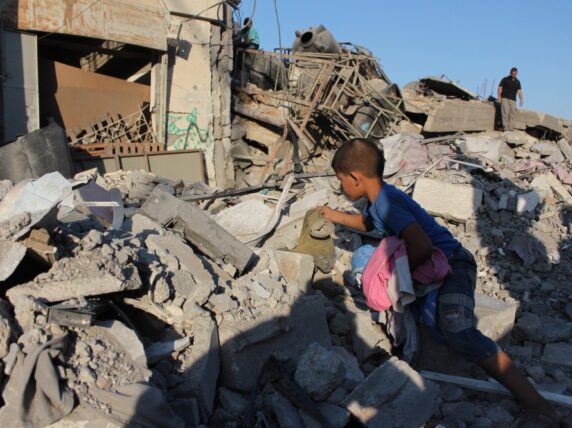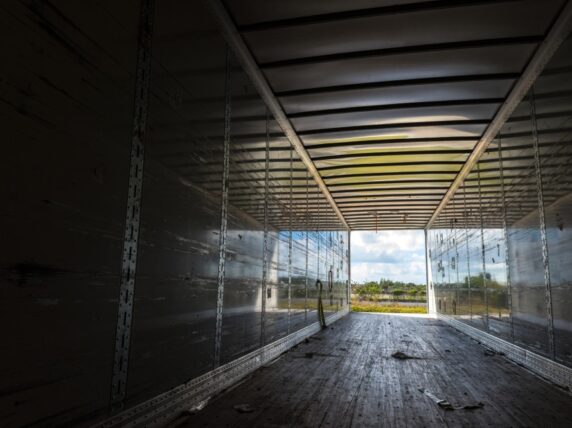How Bond’s working groups spent 2022 and what’s to come in 2023
2022 was yet another impactful year for Bond’s working groups. Our diverse community of over 2,500 individuals from over 330 INGOs and think tanks came together to produce reports, meet with policymakers, deliver workshops, and strategise around advocacy opportunities.
Bond’s working groups made a real push to help the sector to evolve for the better so we are able to support marginalised communities facing poverty, climate change and conflict in lower-income countries. There was a welcome focus in particular on how INGOs can embed locally led development, decolonisation, anti-racism and inclusive and ethical practices across the sector.
We have seen increased collaboration between different working groups whose work complements each other. Under the valued guidance of group chairs and steering committees who dedicate time and expertise to lead the working groups, they have continued to deliver and convene despite the ongoing global, political and social challenges.
We asked our working group chairs to reflect on 2022 and look forward to 2023. Here’s what they had to say:
The Communications Group
The Communications Group kicked off the year by re-launching with two new co-chairs, Jane Lennon. Communications Manager at Primary Care International at that time, and Oliver Arnold-Richards, the External Engagement & Marketing Manager at Practical Action. The group’s first workshop focused on communications strategies, focusing on identifying contemporary challenges in development communications. The resulting blog post captured our learning, focusing on the challenge of “establishing comms as a strategic function”, and potential solutions, including the “integrated communications”, approach shared by Oliver.
The group’s second virtual workshop tackled the very topical subject of “Ethical Storytelling”. The exciting collaboration of presenters from Chance for Childhood and Girls Not Brides, along with involvement from the chairs of the People in the Picture Group, created a rich, insightful session, with important “dos and don’ts” to take back into our day-to-day work.
Conflict Policy Group (CPG)
As the sector tried to keep up with the political turmoil of Westminster, much of the Bond Conflict Policy Group’s focus has been on trying to understand changes in the government’s view on conflict prevention and peacebuilding, and trying to keep these issues front and centre to UK policy, as prime ministers and foreign secretaries have come and gone.
The year began by preparing responses to drafts of the Conflict Strategic Framework, ’the government’s (then definitive) view of where conflict prevention and mitigation fits into wider UK foreign policy. Shortly thereafter the group made representations on the value, and value for money, of conflict prevention to ensure that the International Development Strategy (IDS) did not roll back UK engagement in this field. There was modest relief when the IDS indeed did refer explicitly to UK engagement with conflict prevention.
The Bond CPG also contributed to Bond’s Sustainable Development Goals report and the Joint Committee on the National Security Strategy (JCNSS) call for evidence on the success or otherwise of the Conflict, Security and Stabilisation Fund.
Disability and Development Group (DDG)
The Disability and Development Group has had a fantastically busy year amidst very challenging political and social contexts both in the UK and in the countries where our partners work. Despite this, we’ve witnessed some excellent progress in their influence and reach.
To kick off 2022, many members were involved in the Global Disability Summit in February, providing a focal point in garnering disability inclusion commitments from governments around the world, including the UK. Chief amongst these was the launch of FCDO’s (Foreign, Commonwealth
& Development Office) Disability Inclusion and Rights Strategy (DIRS), developed in consultation with DDG members and partners. The development of the Delivery Plan to accompany the DIRS is ongoing, but there is hope it will be launched in early 2023. DDG has also been collaborating with FCDO’s Disability Inclusion Team on guidelines to be used within FCDO country posts.
DDG members were invited by the International Development Committee (IDC) to give evidence to a one-day hearing on the impact of the Official Development Assistance (ODA) cuts, spotlighting the disproportionate effect on people with disabilities. This enabled more regular dialogue with the IDC and there is hope they will call for a 10-year review of FCDO‘s progress on their disability inclusion policy and practice in 2023.
In September, DDG held the last of its thematic seminars funded through the National Lottery Community Fund (Bond’s first and only), this time on the issue of stigma. This was the culmination of six online and in-person disability mainstreaming learning events, with the National Lottery’s case manager commenting “DDG has delivered excellent value for money on what had been a relatively small grant of £50K.”
Finally, DDG has engaged in several Bond collective activities including consulting on Bond’s SDG report, the revamped Bond Charter, and a presentation on accessibility to Bond Group Chairs.
Funding Working Group (FWG)
In 2022, the FWG held three group meetings. In May, they were joined by Trust and Foundation partners to discuss what shifts in the funding landscape have meant for their priorities as funders, including speakers from The Children’s Investment Fund Foundation (CIFF) and Vodafone.
Our other two sessions, led by steering committee member Dominic Vickers, focused on “decolonising funding in the development system”. The September session – Why aren’t INGOs sharing indirect cost recovery (ICR) with partners? saw the most ever views of a group session recording on Bond’s YouTube channel and a successful blog piece: the high price of lowballing local organisations. Our December meeting focused on decolonising compliance, with speakers from the START network and National Lottery Community Fund.
The FWG held two open sessions to discuss the impact of GBP exchange rate changes on members’ work, particularly FCDO grants. Following this, steering committee member Helena Lupton attended a roundtable with the FCDO to give feedback and share the group’s recommendations. The FWG also recruited new steering committee members and co-chairs and ran a survey to inform our 2023 activities.
In 2023, given the challenges faced by INGOs in securing funding, the group wants to better understand the needs of Bond’s members and go back to basics on the support the group provides. Despite challenges with funding, the group is not going to shy away from the important conversations that we need to have around power shifting and how the sector should fundraise more responsibly.
The group is aware of the ever-growing importance of the crossovers that the FWG has with other Bond working groups. In 2023, we aim to deliver joint meetings and initiatives with other groups to build collaboration across the sector.
Humanitarian Working Group
A cascade of crises has driven humanitarian need to unprecedented levels in 2022. Members of Bond’s Humanitarian Working Group convened in response to situations in Pakistan and Ukraine as well as the global food crisis, securing meetings with senior officials from FCDO to raise issues of concern, ensure enhanced coordination, and strengthen knowledge sharing.
Enhanced relations with FCDO have enabled the working group to engage with humanitarian reform discussions, including those on localising crisis coordination, as well as a conversation about the UK International Development Strategy.
In 2023, the working group will refresh its priorities to maintain focus on key issues concerning humanitarian action and formalise the establishment of crisis-specific sub-working groups.
Mental Health and Psychosocial Disability Sub-Group
The Mental Health Group’s activities in 2022 centred around our quarterly meetings – each focused on a theme determined by our members, with contributions from external and internal speakers. The group have welcomed the increasing number of international partners who have joined our meetings this year.
Decolonisation has become something of a buzzword in the development sector, with contested meanings and implications. The group listened to perspectives on concepts of decolonisation of aid and fundraising from theoretical and practical perspectives – including “on the ground” and in theory. The discussion was wide-ranging, leading to our final session of the year in December on the theme of decolonisation which focused specifically on global mental health.
The groups explored the challenges of linking international mental health work to UK foreign and development policy – it was clear that mental health is a cross-cutting issue which needs greater articulation across sectors. Mental health terminology and language were discussed, including the need for jargon-busting and understanding local cultural and linguistic contexts.
Meanwhile, group members continue to contribute to wider discussions and resources on global mental health, such as our”Sectoral entry points for mental health and wellbeing” papers. The group also participated in the Action for Global Health inter-sectoral meetings and worked to include mental health in Bond communications, technical input and advocacy with the UK government.
In 2023, the group plans to start the year by working with members to (re)define the group’s purpose, to ensure it remains relevant, useful and at the forefront of global mental health work.
Monitoring, Evaluation and Learning (MEL) Group
The MEL Group had a busy start to the year with the successful transition to the online platform. Materials were uploaded from previous group sessions, to serve as a useful set of resources for group members, and to pair with the session recordings, which were also shared to the new platform. As with the previous group space, members were encouraged to post requests for help or advice and event invitations to the comments section. The new communities platform launched by Bond has led to increased levels of group communication and interaction.
The group’s first session was held in May, on engaging children and vulnerable groups in MEL where we heard from Social Development Direct and World Vision on the topics of community trust-building, gender analysis and risk assessment alongside an adaptive process.
In September, the first part of two sessions was held, touching upon locally led MEL. A fantastic presentation from West Africa Civil Society Institute delved into the background of making MEL more locally led. The group was delighted to have the Bond team present their locally led development work and the newly formed Bond Advisory Group.
November saw the second session on locally led MEL, focusing on resources from the Movement for Community-led Development (MCLD). The group heard examples of their participatory Community-led Development assessment tool being used in practice from different contexts and got an overview of their quality appraisal tool for community-led evaluations.
The group were delighted to welcome Elmira Zadissa to the steering group following the May event. With some exciting plans in the pipeline for 2023, watch this space!
People in the Pictures Group
The People in the Pictures Group focuses on the ethics of storytelling in the sector – both gathering stories and sharing content. The group is treated as a hive mind – sharing knowledge, questions and experiences in a safe space. The focus this year has been on developing how to take the ethical concerns that we are all aware of as a sector around our storytelling and develop practical ways of working.
The topics for the year that most in the group were considering were chosen for sessions, which included participatory storytelling, ethical communications in emergency scenarios, and an FAQs session where members input their questions before the session and were then answered as a group.
In the new year, the group will be holding their first face-to-face session since the pandemic, which will give members a chance to bring content from their organisations for feedback and input from the rest of the group.
Resilience Learning Group
This year, the Resilience Learning Group has held meetings to share and coordinate engagement around the Global Platform on Disaster Risk Reduction, to learn about the FCDO Adaptation Team priorities (in collaboration with the Climate Action Network UK (CAN-UK) Adaptation Working Group), and to share experiences on different aspects of early warning early action.
Looking ahead to 2023, they plan to build on their work on “early warning early action” and resilience in fragile contexts to delve into developments in the sector and to discuss remaining challenges.
Sustainable Development Goals (SDG) Group
In 2022, the Bond SDG Group worked across the sector, coordinating input from 50 members and 9 networks, to produce a follow-up on the 2019 report, “The UK’s contribution to the Sustainable Development Goals”. The report examines the impact that Covid-19, cuts to UK aid and other emerging threats are having on the UK’s ability to deliver the SDGs and leave no one behind and provides concrete policy recommendations for how the UK can accelerate progress on the goals in its international work.
The group continued to push for greater accountability on the SDGs through its policy and advocacy work, including providing evidence to the IDC’s enquiry on Extreme Poverty and the SDGs and conducting analysis and responding to the International Development Strategy.
In 2023, as we reach the midpoint of achieving the SDGs, the group will be looking to work with Bond members to coordinate the UK international civil society engagement at the SDG Summit and to continue to advocate for greater clarity on the UK’s commitments to delivering the SDGs.
Join us in 2023
Join our 2,500 working group members and become part of a community this year!
You’ll get the opportunity to engage with colleagues to help transform the sector for the better, learn from experts in your field, advocate for change through influencing policy-making and broaden your contacts through networking with fellow Bond members.
Category
News & ViewsSectors
Advocacy



